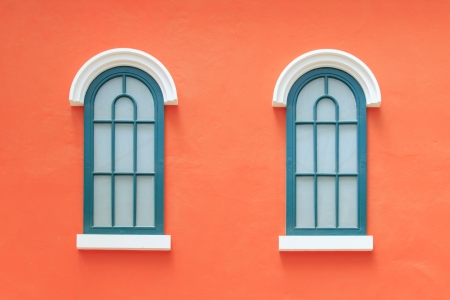1. Introduction to Vastu Shastra and Mirrors
Vastu Shastra, the ancient Indian science of architecture, guides the harmonious arrangement of spaces for health, prosperity, and happiness. Rooted deeply in Indian tradition, it emphasises the balance of energies within a home by aligning construction and interior design with the five elements—earth, water, fire, air, and space. Among the various elements considered in Vastu, mirrors hold a special significance due to their ability to reflect both physical light and subtle energies. In traditional Indian homes, mirrors are not just decorative items; they play an essential role in influencing positivity or negativity within a household. The strategic placement and selection of mirrors as per Vastu principles can help attract good fortune and well-being while avoiding adverse effects that may arise from improper usage. Understanding these foundational concepts is crucial before purchasing or installing any mirror in your home.
Ideal Placement of Mirrors According to Vastu
According to Vastu Shastra, the placement of mirrors in your home can significantly influence the flow of energy and overall well-being. Mirrors are believed to reflect both positive and negative energies, so their positioning becomes crucial for harnessing auspicious vibes. Here are some essential guidelines on the ideal directions and rooms for placing mirrors:
Best Directions for Placing Mirrors
| Direction | Vastu Recommendation |
|---|---|
| North | Highly favourable; attracts prosperity and positive energy |
| East | Good for enhancing health and career growth |
| West | Generally neutral but can be used if space constraints exist |
| South | Not recommended; may cause energy drain and financial loss |
Suitable Rooms for Mirrors as per Vastu
- Living Room: Placing a mirror on the north or east wall enhances wealth and harmony.
- Bedroom: Avoid keeping mirrors directly in front of the bed or reflecting the bed, as it may lead to stress and disagreements between couples.
- Pooja Room: Mirrors are not advised here since they can disturb the sanctity of spiritual practices.
- Dining Area: A mirror reflecting the dining table is considered auspicious, symbolising abundance.
Additional Vastu Tips for Mirror Placement
- Avoid broken or chipped mirrors, as they attract negativity.
- Makes sure mirrors do not reflect clutter, dustbins, or toilets.
- The height of the mirror should be such that it reflects the entire head and shoulders without any cuts.
Remember
The right placement of mirrors not only amplifies natural light but also ensures a smooth flow of positive energy throughout your home. By following these Vastu tips, you can create a harmonious atmosphere that aligns with traditional Indian beliefs and brings prosperity into your living spaces.

3. Mirrors to Avoid: Shapes, Frames, and Defects
In the Indian context, Vastu Shastra offers clear guidelines on the types of mirrors that should be avoided to maintain positive energy in your home or office. Choosing the right shape is crucial—avoid irregular, triangular, or oval mirrors, as these are believed to disrupt energy flow. The most auspicious shapes for mirrors according to Vastu are rectangular and square, which symbolise stability and balance.
Frames Matter: Material and Colour
When it comes to frames, always choose mirrors with solid, robust frames. Avoid mirrors with metallic frames in dark colours like black or red, as these shades are often associated with negative energies in Indian tradition. Instead, opt for wooden or light-coloured frames which enhance harmony and bring warmth to your space.
Steer Clear of Defective Mirrors
One of the cardinal rules in Vastu is to never use cracked, chipped, or broken mirrors. Such defects are thought to attract negative vibrations and may lead to obstacles in prosperity and peace at home. Additionally, avoid old or antique mirrors if their reflective surface is unclear or stained, as this can cloud the energy within your living environment.
Practical Tips for Selection
If you are shopping for a new mirror, inspect it thoroughly for any scratches or blemishes. Ensure the mirror provides a clear and undistorted reflection. Remember, a pristine mirror not only enhances aesthetics but also aligns with traditional Indian beliefs for well-being and growth.
4. Do’s and Don’ts: Common Vastu Errors with Mirrors
When it comes to incorporating mirrors in your home, following Vastu Shastra principles is crucial to ensure positive energy flow and avoid inviting negativity. Many homeowners unknowingly make placement mistakes that are considered inauspicious by Indian Vastu experts. Below are some common do’s and don’ts you should keep in mind:
Typical Mirror Placement Mistakes According to Vastu
| Do’s (Auspicious) | Don’ts (Inauspicious) |
|---|---|
| Place mirrors on North or East walls for better energy. | Avoid placing mirrors on South or West walls. |
| Ensure mirrors reflect beautiful views or open spaces. | Do not place mirrors facing the main door directly. |
| Use square or rectangular mirrors for stability. | Avoid irregular, broken, or circular mirrors as they disturb harmony. |
| Keep mirrors spotless and free of cracks. | Do not keep cracked or dirty mirrors; they attract negative vibrations. |
| Use full-length mirrors in dressing rooms facing East or North. | Avoid placing mirrors opposite the bed, especially where one can see themselves while sleeping. |
Insights from Indian Vastu Experts
According to well-respected Vastu consultants, placing a mirror incorrectly can lead to problems such as financial losses, health issues, and family disputes. For instance, a mirror reflecting the bed is said to double health problems and stress, while a mirror facing the main entrance may cause loss of wealth by reflecting positive energy out of the house. It is also considered unlucky if two mirrors face each other as this can create confusion and restlessness within the home environment.
Vastu-Friendly Mirror Tips for Every Indian Home
- Always check direction: Prefer North or East walls for mirror placement.
- Mind the reflection: Let your mirror reflect light, water bowls, or greenery instead of clutter or toilets.
- No direct bed reflection: Shift your mirror so it does not reflect your sleeping area.
- Avoid mirror mosaics: Use whole pieces rather than fragmented designs which break up energies.
Remember: A well-placed mirror is not just a décor element but a channel of positivity according to Indian tradition!
5. Cultural Practices and Beliefs Around Mirrors in India
In Indian homes, mirrors are not merely decorative items but hold deep cultural significance shaped by centuries of tradition and symbolism. According to Vastu Shastra, mirrors act as powerful energy reflectors, making their placement a matter of both spiritual and practical concern. Traditional stories across regions suggest that mirrors can ward off negative energies or even attract prosperity when positioned correctly. For instance, some families believe that a mirror facing the main entrance may repel good fortune, while others use small mirrors on doors to deflect ill will.
The symbolism of mirrors in Indian culture extends beyond Vastu. In many households, mirrors are considered to enhance beauty and illuminate spaces, symbolizing clarity and self-reflection. Ritual practices during festivals often incorporate mirrors to multiply light and create auspicious environments. Furthermore, certain communities use intricately designed mirrors as part of wedding trousseaus, signifying purity and the start of a new journey.
Cultural nuances also dictate how and where mirrors should be placed inside the home. For example, placing mirrors in the bedroom facing the bed is generally avoided due to beliefs about disturbing sleep or inviting discord between partners. Instead, mirrors are preferred in dining areas to double the image of food, symbolizing abundance and prosperity for the family. These traditions continue to shape modern Indian interiors, blending age-old wisdom with contemporary design sensibilities.
6. Vastu Remedies if Mirror Placement is Not Ideal
Even with the best intentions, sometimes mirrors end up in positions that are not Vastu-compliant. If you discover such doshas in your home, don’t worry—there are several simple, homegrown Indian remedies to help balance the energies and restore positivity.
Use of Sacred Symbols and Yantras
If moving the mirror is not feasible, consider placing a Vastu-friendly yantra like Shree Yantra or Swastik symbol near the mirror. These sacred symbols help neutralize negative energies and promote harmony in the space.
Covering Mirrors During Night
As per Indian tradition, covering mirrors with a plain cloth during the night is believed to prevent the reflection of negative energies. Use a cotton or silk cloth for best results—this is especially helpful if the mirror faces the bed or main door.
Placing Sea Salt Bowls
Sea salt has long been used in Indian households for its cleansing properties. Keep a small bowl of sea salt near the problematic mirror; replace it every week to absorb any negativity and purify the space.
Lemon and Camphor Remedy
Hanging a small piece of lemon or camphor near mirrors that are not ideally placed can act as an energy cleanser. This age-old Indian remedy is simple yet effective in balancing Vastu doshas related to mirrors.
Avoid Reflecting Main Door Directly
If a mirror cannot be shifted from directly facing the main entrance, place a decorative partition or curtain between the door and the mirror. This helps break direct energy flow and maintains positive vibrations inside your home.
Consulting a Local Vastu Expert
For persistent issues, consulting a local Vastu consultant familiar with regional traditions can offer personalized solutions using indigenous materials like turmeric, copper, or holy basil (tulsi), ensuring your living space remains peaceful and auspicious.
By following these practical remedies rooted in Indian culture, you can easily correct Vastu doshas associated with mirrors and invite prosperity, health, and happiness into your home.

